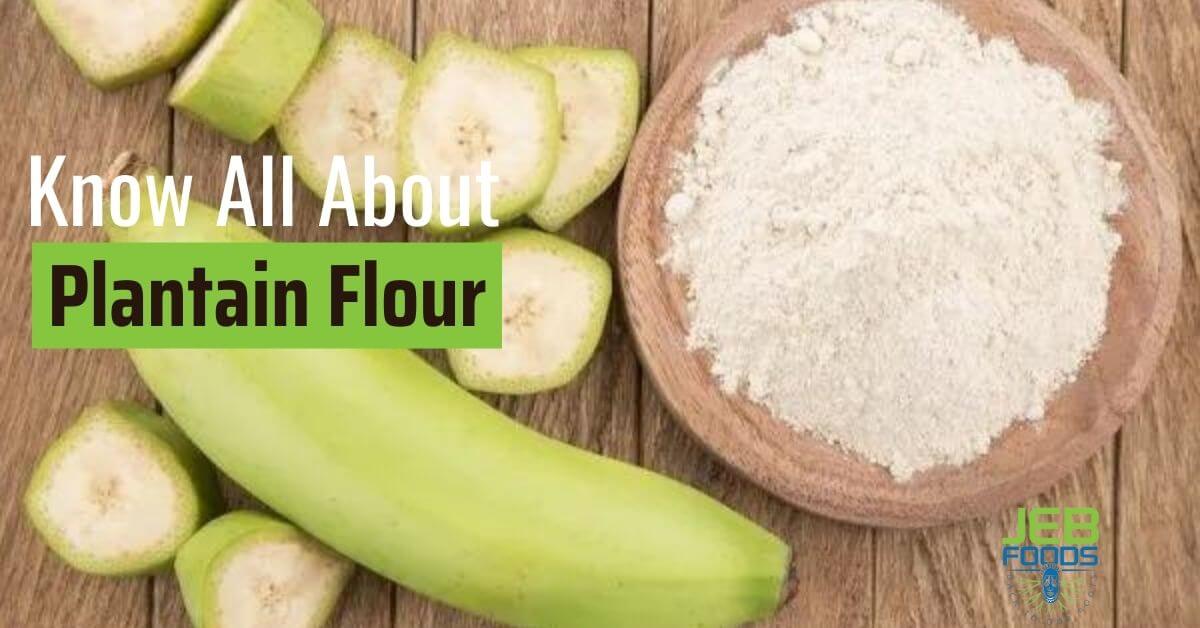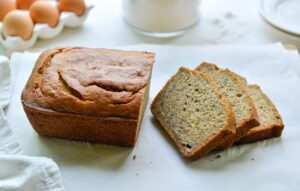Most people are yet to know all about cassava flour as the most commonly used flour alternative especially in baking. I have seen its immeasurable benefits since I came in contact and fell in love with it 8 years ago.
The unbelievable health benefits and baking flexibility that cassava flour has made it easy for me to choose, especially for its baking benefits.
Coupled with the fact that I have diet restrictions, which cassava flour helped in maintaining.
Let me show you all about cassava flour, where it came from, Its benefits and much more.
Introduction to Cassava
Table of Contents
ToggleCassava (pronounced like Kuh-saa-Vuh) which is known under different names as Yuca, Polvilho etc.,
Cassava, or yuca root, is not to be mixed with the pretty yucca plants in your yard; it is a starchy tuberous root commonly found in South American, African, and Asian cuisines.
Cassava flour is made from just the ground-up root of the cassava plant and is a staple ingredient in Brazil, Portugal, and many other countries outside of the United States.
Based on Cassava’s starchy root tubers, the plant is widely cultivated and grown in many regions of the tropics and subtropics worldwide.
What is Cassava Flour
Cassava Flour is a starchy tropical tuber that is processed, dried and ground. It becomes a perfect neutral-tasting flour substitute.
It is low in sugar and minimally processed, so it’s considered a Paleo-friendly ingredient that allows those following the diet to enjoy baked goods still when cravings strike.
Cassava flour is considered a rich source of starch, the main source of carbohydrates and dietary fibers.
Cassava root tubers are poisonous in the raw state because they contain cyanide, which is toxic to ingest.
But as long as you’re cooking the root or using purchased cassava flour, any dangerous traces of toxins are removed.
There are methods of detoxifying the roots. You are to grind the plant into flour and then wash it with boiling water, fermenting and heating.
Another way is to grind the plant into flour and combine it with water. The mixture is then thinly spread (about 1 centimeter) in the shade.
It is left for around five to six hours. Almost all of the hydrogen cyanide may be expelled in this manner.
Cassava flour is in great demand on the worldwide flour market due to its low gluten concentration compared to other types of flour.
Cassava Flour Market & Consumption
Although Cassava is not widely cultivated in the United States, it is the world’s largest consumer of cassava products. It provides the staple food of an estimated 800 million people worldwide.
Because of its increased nutritious value, cassava flour is becoming more popular in the worldwide flour industry for home-usage.
In the food and feed industries, demand for cassava flour is rising at a rapid pace.
It is becoming more popular in the food business as a non-gluten and nutritionally dense ingredient, owing to rising consumer demand for healthier foods and can also used as a sweetener in a variety of processed foods.
In bakeries and confectioneries it is beneficial and commonly combined with wheat flour in various ratios in bakeries, improving the nutritious value of bread items.
Cassava flour is also seen as a significant food security source in desert areas, owing to the cassava plant’s capacity to grow in considerably less water-rich environments.
What Nutrients are Contained in Cassava Flour
Cassava flour has calcium, potassium, sodium, phosphorus, iron, and other nutrients. In addition to the mineral richness, cassava flour provides a high source of vitamins such as vitamin A and C.
Cassava flour usage has increased due to the known health advantages of vitamin C, which is beneficial for the skin and hair and helps strengthen the immune system.
A 100-gram portion of cassava flour – around 3.5 ounces – has 340 calories.
Each serving of the flour has 79.8 grams of carbs, or 61 percent 130 grams suggested by the Institute of Medicine for intake daily.
Cassava flour also contains some protein and is low in fat.
Cassava flour has 417 mg of sodium per serving.
The American Heart Association suggests limiting your intake to 1500 mg per day to lower your risk of heart attack and stroke and avoid high blood pressure. Cassava offers about one-third of this amount in a single meal.
What is Cassava Flour Made From
Cassava is one of the world’s most significant cash crops and its roots may be made into various goods such as cassava flour, starch, glucose syrup, and garri.
It is a critical component in the profitable manufacture of bread. Bread and confectioneries made with a 10% cassava flour inclusion in wheat flour performed well compared to 100% wheat flour.
Cassava flour is used as a partial replacement for many bakery and pasta products.
Cassava contains cyanide which is toxic to consumption, so when processing cassava flour, the first and main goal is to ensure that it is free from cyanide.
The processing of cassava flour involves the cassava roots harvested from the farm to be fully cooked. After this, cassava flour production involves peeling and thorough washing of roots, grating, dewatering, pulverizing, drying, and milling.
As a safety measure, all prescribed measures are required to ensure that the cyanide content is always below 10 ppm, which is the safe-for-human–consumption threshold.
As a final safety check, all production lots are tested for cyanide before any approval for delivery is given.

Health Benefits of Cassava Flour
Below is a list of the top cassava flour health benefits:
1. Lowers Appetite and Lead Loss
Cassava is frequently associated with weight reduction and lowering the risk of obesity. It is due to the presence of fiber influx. The fiber’s goodness not only satisfies your hunger but also helps you lose weight faster. Cassava flour has 340 calories per 100 grams. It would cover around 4 ounces. 95 percent of the 340 calories come from carbs, with the remainder coming from protein.
2. Increases energy and enhances cognitive function
Because cassava flour is abundant in carbs, it aids in energy production. When you add cassava flour to your meals, your brain will not only start to operate more effectively. Each serving includes 80% carbs, which is more than enough for a day’s worth of eating.
3. It is a reward for Nerve Health
According to some experts, cassava flour is necessary for a healthy neurological system. It not only alleviates tension and anxiety but also has a positive effect on your health.
4. Maintains muscle health
Cassava flour will assist you in growing strong and lean muscles if you are health aware. It includes protein, which helps to keep your muscles healthy and your tissues nourished. One serving includes 2 grams of protein, which is sufficient to fulfill daily requirements.
5. Reduces the risk of Blood Pressure
Another fantastic advantage of cassava flour is that it dramatically reduces blood pressure.
Again, this is because it is high in fiber. Each cup of cassava flour increases your fiber intake by 4 grams. It contributes significantly to the ideal fiber intake recommended for women regularly.
6. It Makes you less prone to disease
You can reduce your risk of illnesses like osteoporosis by eating cassava flour because it includes vital elements such as copper and magnesium, which support a healthy lifestyle. One cup of Cassava provides just 206 grams of copper, only about a quarter of the daily need.
7. Heart-healthy and anti-cancer
Cassava flour is essential for heart health. It protects you from coronary heart disease, stroke, and heart attack, among other things, because it contains vitamin C and folic acid, which also protect you against cancer. With cassava flour, you can also reduce complications during pregnancy.
My Favorite Cassava Flour Recipe
Cassava Flour Pancakes Recipe

- 1 Cup Jeb Foods Cassava flour
- 2 Cups Plant milk (almond milk)
- 2 tbsp baking powder
- 1 tbsp almond butter ((or other nuts/seed butter))
- 1/4 Cup maple syrup
- 2 tbsp apple cider vinegar
In a medium mixing dish, combine almond milk and apple cider vinegar. Leave the mixture for few minutes by itself.
Combine Jeb Foods Cassava flour and baking powder in a large mixing dish.
Mix almond butter, maple syrup, almond milk, and vinegar in a mixing dish.
Pour the liquid components into the drying ingredients and thoroughly combine until no aggregates remain.
Preheat your nonstick pan (I used a non stick crepe pan) and pour in about 1/8 cup of batter.
Cook until bubbles emerge and the bottom of a pancake is golden via applied medium heat.
Turn the opposite side and cook for between 1-2minutes.
Continue to cook the remaining pancake batter.
Afterward, serve with berries/honey/maple syrup.
Pancake Pan: I recommend preheating the pan for 5-7 minutes on medium heat.
Jeb Foods Cassava flour is used in this recipe.
Other brands of cassava flour have not been tested and may come out with varying results.
Paleo Cassava Flour Tortillas

- 1 ½ cup Jeb Foods Cassava flour
- ½ tbsp Salt
- ½ tbsp garlic powder
- ¼ Cup Olive Oil
- ¾ Cup warm water (plus more if needed)
In a large bowl, whisk together Jeb Foods cassava flour, salt, and garlic powder.
Pour oil and warm water. Thoroughly mix the dough till fully combined.
Divide the dough into 8 equal halves.
Roll each part into a ball and sandwich it between two sheets of parchment paper.
Roll the dough until it is 1/8-inchthick and has a diameter of 4 1/2-5 inches.
Alternatively, put dough balls in a tortilla press. Repeat with the remaining dough balls.
Heat dry skillet or griddle over moderate heat.
Cook for 1-2 minutes per side, or until the tortilla begins to bubble.
Serve tortillas when warm and enjoy!
Jeb Foods Cassava flour is used in this recipe. Alternative brands of cassava flour have not been tested; therefore, the results may vary.
Cassava Flour Brownies

- 1/2 cup dark chocolate (chopped)
- 1/2 cup raw cacao powder
- 1/2 cup pure maple syrup
- 1/3 cup coconut oil
- 2 pc eggs
- 1/2 cup Jeb Foods cassava flour
- 1/2 tbsp. vanilla extract
- 1/2 tbsp. Salt
- 1/4 tbsp. baking soda
- 1/2 tbsp. cacao nibs
Heat before hand the oven to 350°F and rub an 8-inch-by-8-inch glass baking dish with coconut oil.
In a small saucepan, combine the chocolate, cacao, coconut oil, and maple syrup. Melt over low heat, stirring. Pour into a mixing bowl.
Add the remaining ingredients and mix well.
Scoop into the prepared baking dish.
You can perform a toothpick test after 20minutes of baking
Serve and Enjoy
Jeb Foods Cassava flour is used in this recipe. Alternative brands of cassava flour have not been tested; therefore, the results may vary in such cases.
Frequently Asked Questions About Cassava Flour
Is cassava flour healthy
Cassava is a tropical plant that grows predominantly in Asia, Africa and also South America and rich in good carbohydrates, which donate valuable energy and do not make you fat.
Also suitable for diets, among other things. It is suitable for diabetic patients to consume due to its low glycemic index. See the full cassava flour benefits
Is cassava flour healthy and gluten-free
It is naturally gluten-free and contains, among other things, a lot of iron, which the body needs for various types of work. Cassava flour may also be turned into a nutritious paste that can be used as an exfoliant to nourish the skin, and it is nut-free.
Can I eat too much cassava flour
Based on the CDC Prevention research, most commercial cassava flour has been adequately treated to eliminate toxic glycosides and poses zero danger of cassava poisoning.
It is tolerable to consume at a moderate rate. To be certain of the nutritional status of cassava flour, go for Jeb Foods Cassava flour.
Where to buy cassava flour
You can buy Jeb Foods Cassava Flour for your full premium baking experience. It is a single-ingredient, plant-based baking flour made from Cassava, also known as Yuca.
It’s grain-free, gluten-free, nut-free and perfect for paleo or vegan lifestyles, but it has the taste and texture of wheat flour.
Final Thoughts
Cassava flour is a culinary game-changer, matching the unique taste and texture of wheat.
Cassava flour has less than 120 calories per quarter-cup serving, and As a result, it has fewer calories than other gluten-free flour, such as almond or coconut flour.
Overall, it has more water, less fat, and fewer calories than other flours such as maize, wheat, plantain, almond, coconut, rice, and sorghum flour.
All these make Cassava flour a great baking alternative and a comprehensive health benefit.




